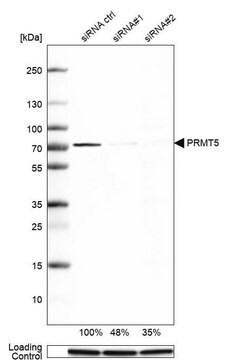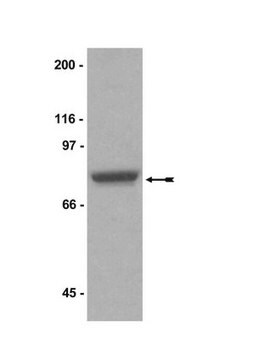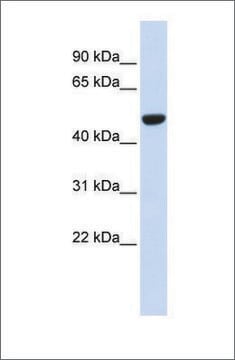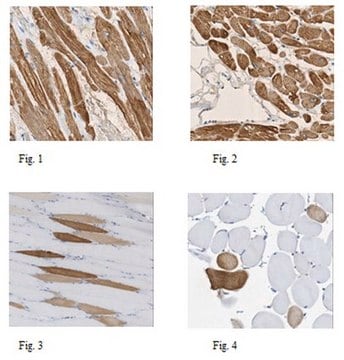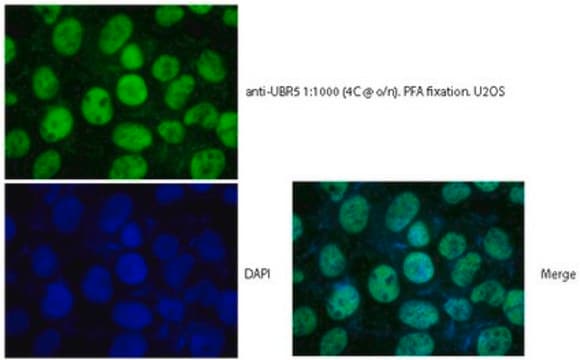P0493
Monoclonal Anti-PRMT5 antibody produced in mouse
~2 mg/mL, clone PRMT5-21, purified immunoglobulin, buffered aqueous solution
Synonym(s):
Anti-Protein-Arginine Methyl Transferase 5
About This Item
Recommended Products
biological source
mouse
Quality Level
conjugate
unconjugated
antibody form
purified immunoglobulin
antibody product type
primary antibodies
clone
PRMT5-21, monoclonal
form
buffered aqueous solution
mol wt
antigen ~70 kDa by SDS-PAGE
species reactivity
mouse, hamster, bovine, canine, monkey, rat, human, chicken
concentration
~2 mg/mL
technique(s)
indirect ELISA: suitable
microarray: suitable
western blot: 2 μg/mL using whole cell extract of human melanoma cell line G361
isotype
IgG2a
UniProt accession no.
shipped in
dry ice
storage temp.
−20°C
target post-translational modification
unmodified
Gene Information
human ... PRMT5(10419)
General description
Immunogen
Application
Western Blotting (1 paper)
Biochem/physiol Actions
Physical form
Disclaimer
Not finding the right product?
Try our Product Selector Tool.
recommended
Storage Class Code
12 - Non Combustible Liquids
WGK
nwg
Flash Point(F)
Not applicable
Flash Point(C)
Not applicable
Certificates of Analysis (COA)
Search for Certificates of Analysis (COA) by entering the products Lot/Batch Number. Lot and Batch Numbers can be found on a product’s label following the words ‘Lot’ or ‘Batch’.
Already Own This Product?
Find documentation for the products that you have recently purchased in the Document Library.
Our team of scientists has experience in all areas of research including Life Science, Material Science, Chemical Synthesis, Chromatography, Analytical and many others.
Contact Technical Service